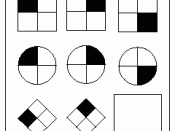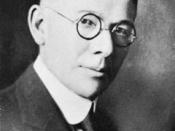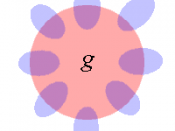Jensen, (1969) noted that "intelligence, like electricity is easier to measure than to define". Although it may seem paradoxical, psychologists have developed a number of valuable and reliable measures to assess intelligence in the absence of a totally satisfactory definition.
Intellectual assessment involves the administration of interpretation of tests measuring intellectual ability to a given person(s)at any one point in time . Less than twenty years ago only a handful of well developed instruments were available to the examiners . Today the situation has dramatically changed . The overall effect has been to give clinicians a wider range of choice in what they measure and how they measure it.
Tests of measuring psychometric abilities are the most commonly used to assess intelligence in the clinical field. Intelligence batteries of this category tend to be interpreted with respect to a model of the structure of abilities that itself is based on findings from factor analysis .
Four main types of tests will be discussed in brief detail, 1. Verbal 2. Non-verbal 3. Culture fair and 4. Group tests.
Verbal tests which assess intelligence require the use and knowledge of vocabulary in the administration and performance of the test. There are numerous examples including the Stanford- Binet Test and the Wechsler Scales. The Wechsler Scales which were in fact developed without the use of factor analysis. The Scales were first produced in 1938 with regular updates the best example being the Wechsler Adult Intelligence Scale or WAIS . A computer version of this test is also available. A verbal intelligence, performance intelligence and overall intelligence score can be obtained from the WAIS . The reliability of full scale WAIS scale in high and the reliability of the verbal and performance scales is only slightly lower . However, it does not measure extreme...


